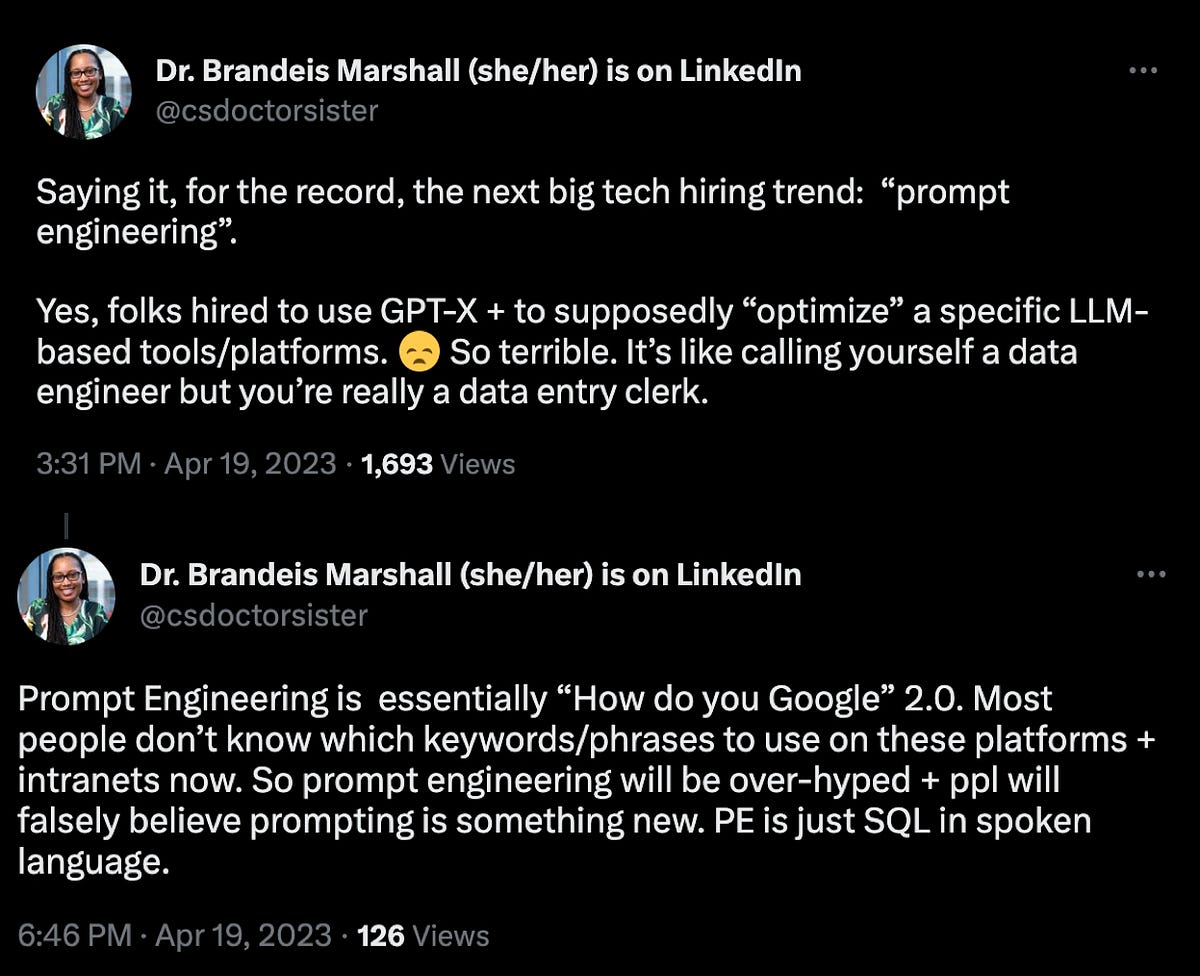What’s UnAI-able

🌈 Abstract
The article discusses the limitations of AI and the skills that cannot be automated or digitized. It highlights three key human-driven decision-making competencies that will be essential in the future: contextual awareness, conflict resolution, and critical thinking.
🙋 Q&A
[01] What Can't AI Do?
1. What are the three categories of human-driven decision-making competencies that the article identifies as unAI-able? The article identifies three categories of human-driven decision-making competencies that cannot be automated by AI:
- Contextual Awareness: The ability to consider multiple types of context (cultural, economic, emotional, historical, location, political, situational, and social) and understand the interconnections between them.
- Conflict Resolution: The ability to handle friction and make informed choices, as AI tends to choose the most unflattering side and cannot determine when to stop responding.
- Critical Thinking: The ability to assess and evaluate circumstances, combining problem-solving, curiosity, creativity, inference, and strategy, which AI lacks.
2. Why does the article argue that these skills will be essential in the future? The article suggests that these skills will be essential in the future because they require human-driven decision-making that AI cannot replicate. As AI becomes more prevalent, there will be a greater need for people who can understand the nuances of the strengths and weaknesses of digital and communication skills within their primary disciplines, and who can diagnose the impact of multiple contexts, manage tensions, and think critically.
3. What examples does the article provide to illustrate the limitations of AI in these areas? The article provides the following examples to illustrate the limitations of AI:
- AI cannot separate economic, social, and political contexts as independent and identically distributed elements, as real-life situations are more complex.
- AI chatbots have displayed inappropriate and biased responses, such as Tay's racist and misogynistic tweets and Snapchat's AI chatbot providing inappropriate advice to a minor.
- AI-generated art has faced copyright infringement disputes due to the use of content scraped from online repositories, as AI lacks the lived experience, expertise, and critical thinking skills that humans possess.
[02] Implications for Careers and Job Roles
1. How does the article suggest that job duties will change rather than disappear due to the limitations of AI? The article suggests that for certain careers, such as coding and software development, the job duties will pivot rather than disappear. Instead of just writing code, there will be a greater need for people to explain and interpret what generative AI is actually doing, and to be conscious of the potential societal impacts of the code they write. In essence, it will be important for people to understand the nuances of the strengths and weaknesses of their digital and communication skills within their primary discipline.
2. What does the article suggest people should focus on to "AI-proof" their careers? The article suggests that people should focus on developing and honing the three categories of human-driven decision-making competencies that cannot be automated by AI: contextual awareness, conflict resolution, and critical thinking. By developing these skills, people can ensure that their careers and job roles remain valuable and in-demand, even as AI becomes more prevalent.